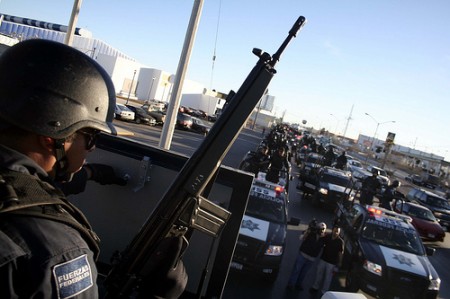
Mexico is at a crossroads. As last week’s gubernatorial elections demonstrated, the Mexican state can no longer provide basic security and ensure the rule of law in many urban environments, signaling that Mexico might soon join the ranks of international failed states like Somalia, Afghanistan, and Haiti.
The New York Times adopted an optimistic perspective, noting the strength of the Mexican democracy amidst all the violence perpetrated by the drug cartels, as evidenced by the surprisingly positive voter turnout in many areas. These elections, however, also witnessed “the most blatant evidence of traffickers interfering in politics since Calderon came to power in late 2006,” with voter turnout at historic lows. Coming close to a stand-still in areas where drug violence has been prominent—in Ciudad Juarez, voter turnout was only 20 percent, and in the state of Chihuahua as whole, only one-third of voters showed up—turnout can be explained by the violence surrounding electoral campaigns. Leading up to the elections, candidates had been killed and threatened, campaign offices had been bombed and general fear of the power of Mexico’s infamous drug cartels had uncomfortably set into everyday life in the country.
